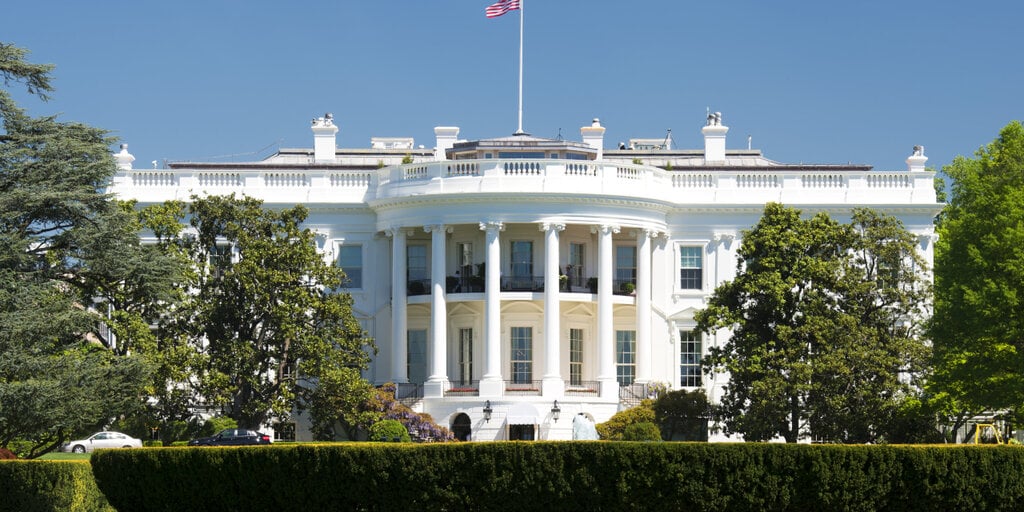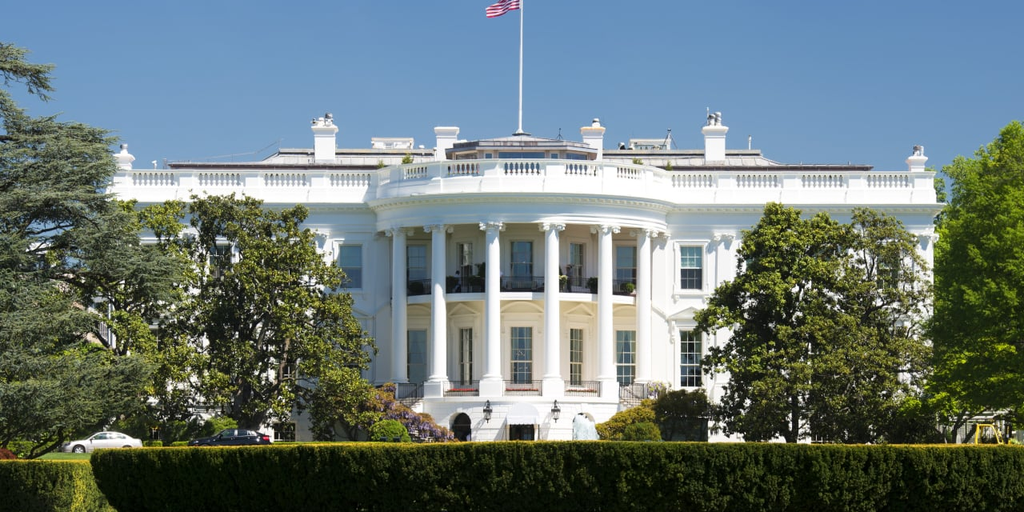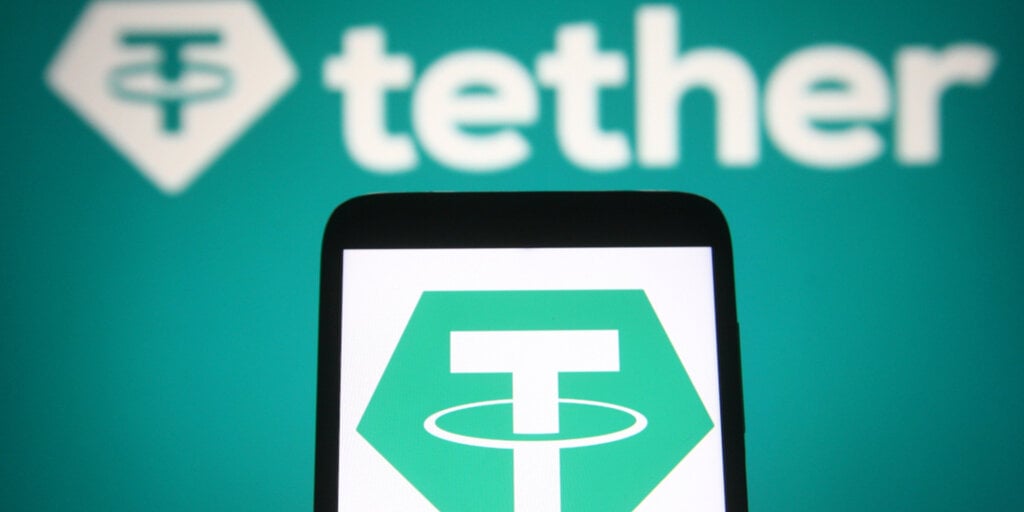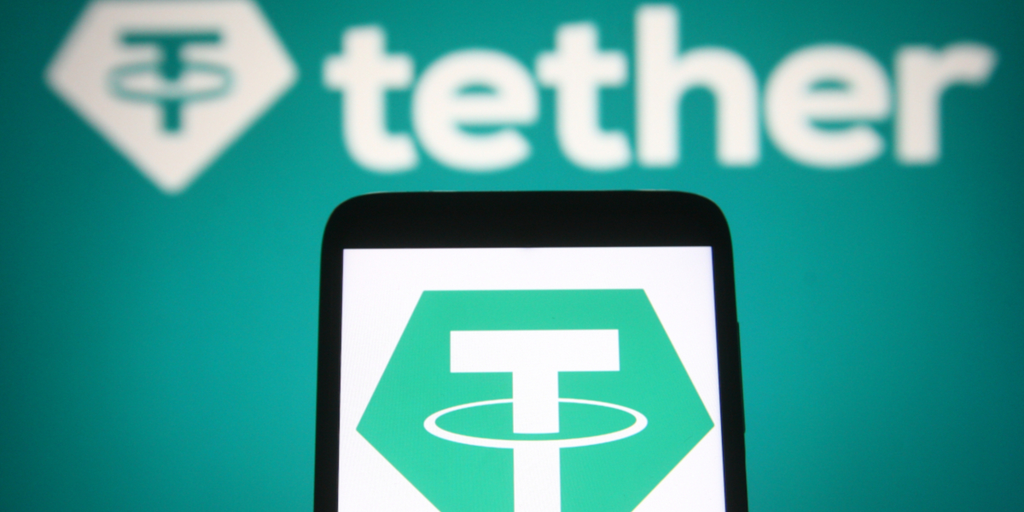Law and Order
Trump Admin Throws Weight Behind Bill to Repeal Anti-DeFi IRS Crypto Tax Rule
Published
1 month agoon
By
admin

President Donald Trump’s crypto czar has officially endorsed legislation that would prevent the IRS from imposing strict reporting rules on decentralized finance projects—marking the first time the Trump administration has explicitly weighed in on pending crypto policy.
David Sacks, Trump’s crypto policy chief, said on Tuesday that the White House “strongly supports” passage of a joint congressional resolution that would undo a controversial Biden-era IRS rule expanding the definition of “broker” to include most DeFi projects.
Many in the industry contend the rule, which has yet to go into effect, could all but eliminate the DeFi sector by obligating permissionless protocols to conform with stringent reporting requirements designed for Wall Street brokers.
“This rule, issued as a midnight regulation in the final days of the previous administration, would stifle American innovation and raise privacy concerns over the sharing of taxpayers’ personal information, while imposing an unprecedented compliance burden on American DeFi companies,” Sacks said in a statement.
The Silicon Valley entrepreneur added that should the House and Senate pass a resolution to undo the IRS rule, Trump’s senior advisors would recommend the president sign it into law.
Last week, a House committee voted to advance the measure to a full floor vote. Meanwhile, in the Senate, a version of the resolution introduced by Sen. Ted Cruz (R-TX) has 13 co-sponsors, all Republican. The legislation would need to pass through both chambers with simple majorities before it would head to Trump’s desk to be signed into law.
Industry advocates say the IRS rule, as it currently stands, would be unfair to DeFi users and impossible to comply with for DeFi protocols. It would obligate all American DeFi users to tie their on-chain addresses to their identities, a touchy subject in the privacy-prone realm of decentralized finance.
It would also force permissionless DeFi protocols—automated systems run by smart contracts that in many cases do not involve human oversight—to register like brick-and-mortar Wall Street brokerage firms with traditional corporate leadership structures.
On Tuesday, crypto policy leaders rushed to thank Sacks and the Trump Administration for putting their weight behind the effort to stop the IRS’ new rule from going into effect.
A very important step to undo a very damaging Warren-era policy – one that destroys small blockchain projects and strangles any tax revenue that the industry would otherwise produce.
— Bill Hughes : wchughes.eth
(@BillHughesDC) March 4, 2025
Coin Center, a Washington-based crypto lobbying group, was one such organization that cheered the announcement. Just a day prior, the group’s executive director Peter Van Valkenburgh wrote that while “there has been much talk” of American politicians becoming friendlier towards crypto, the upcoming vote on overturning the IRS’s new broker rule will constitute “a decisive first test of that theory.”
Editor’s note: This story was updated after publication with additional details.
Edited by Andrew Hayward
Daily Debrief Newsletter
Start every day with the top news stories right now, plus original features, a podcast, videos and more.
Source link
You may like


Bitcoin Trades Above $79K as Asia Markets React to Trump Tariffs


Memecoin platform Pump.fun brings livestream feature back to 5% of users


Bitcoin Price On The Verge Of Explosive 15% Breakout As Analyst Spots Triangle Formation


Strategy CEO Makes The Case For Corporate Bitcoin Adoption In MIT Keynote


Hackers Hammer Android and iPhone Users As Bank Account Attacks Surge 258% in One Year: Kaspersky


Cryptocurrencies to watch this week: Aptos, XRP, Solana
Law and Order
Tether Won’t Try to Make USDT Comply With US Laws, ‘Needs’ New Stablecoin: CEO
Published
2 days agoon
April 4, 2025By
admin

With all the talk about how stablecoin legislation in the United States may or may not negatively impact foreign issuers, you might expect the biggest (and most controversial) issuer on the planet to be feeling the heat. But that’s far from the case, according to Tether CEO Paolo Ardoino.
In fact, Tether has no real issue with its flagship stablecoin, USDT, being banned in the United States by new regulatory legislation, Ardoino told Decrypt on Friday.
To circumvent the potential issue, Tether is actively considering creating a new U.S.-domiciled stablecoin that will comply with pending American stablecoin laws, Ardoino said.
“We believe that our main stablecoin is perfected for emerging markets, but we can craft a payment stablecoin that works for the U.S.,” Ardoino said. “We need to have two products with two different value propositions.”
Stablecoins are digital assets that are typically pegged to the U.S. dollar, designed to hold a steady value, and allow for cryptocurrency traders to enter and exit positions without accessing dollars directly. They are far and away the most traded digital assets in the market, accounting for tens of billions of dollars in volume every day.
As parallel stablecoin bills race through the House and Senate to floor votes, questions have abounded over the fate of Tether, by far the market’s largest player.
As currently written, both the House’s STABLE Act and the Senate’s GENIUS Act would require foreign stablecoin issuers like Tether—which is headquartered in El Salvador—to comply with the stringent anti-money laundering requirements of the Bank Secrecy Act, and vigorous audits of their reserves.
Tether, the $144 billion stablecoin behemoth, has never submitted to a full financial audit, and critics and competitors have argued the company would exit the U.S. altogether if it had to comply with intricate anti-terrorism and anti-money laundering rules. Critics have, for years, also doubted whether Tether actually has the money it says it does to back each USDT token—a criticism the company has vigorously combatted over and over again.
Ardoino maintains that Tether has “the highest level of compliance” among its competitors when it comes to cooperation with law enforcement. He added the company is currently in conversations with multiple “Big Four” accounting firms about a full audit, but that the firms have so far been “rightfully” cautious about engaging with the novel stablecoin market.
And those theories that Tether would stay out of the U.S. because of new stablecoin laws? Ardoino says they reek with “the smell of desperation” of Tether’s competitors, who “were betting everything” that the company wouldn’t come play ball in the United States.
“Here I am,” Ardoino said Friday from the Manhattan offices of Cantor Fitzgerald. The Wall Street firm, run by U.S. Commerce Secretary Howard Lutnick and his family, custodies much of Tether’s U.S. Treasuries reserves.
And yet, despite his recent stateside show of force, Ardoino does not appear interested in making the necessary adjustments to allow USDT to be issued freely in the U.S.. Overall, the Tether CEO doesn’t seem too fussed with the state of American stablecoin legislation. He says he is more focused on the emerging markets where USDT has become such a powerhouse in recent years.
“We don’t think there is anything particularly problematic,” Ardoino said of the current content of pending U.S. stablecoin legislation.
The Tether CEO added he is optimistic, though, that USDT will remain listed on U.S. secondary markets, which he says are “very important for remittances.” As currently written, the Senate’s stablecoin bill would only ban non-compliant issuers from offering tokens directly to American users. The House bill goes farther, by banning the trade of such noncompliant tokens by custodial intermediaries like Coinbase, two years after the law goes into effect.
At some point during the coming months, that competing language will need to be reconciled before a final bill is—should it receive the needed votes—placed on President Donald Trump’s desk for signature.
It appears, though, that neither bill as written would explicitly ban the trade of USDT on non-custodial DeFi exchanges like Uniswap or Jupiter.
As jurisdictions around the world begin instituting stablecoin-specific regulations, Tether’s business has been impacted in certain markets. Earlier this week, Binance delisted USDT from its European sites, given the token does not comply with the European Union’s new requirements for stablecoin issuers.
Ardoino said that, similar to its burgeoning U.S. strategy, Tether has invested in multiple European companies launching grassroots dollar- and euro-backed stablecoins compliant with EU regulations.
But the executive said he pictures a future long-term reality in which USDT is not a major player in either the United States or Europe.
Daily Debrief Newsletter
Start every day with the top news stories right now, plus original features, a podcast, videos and more.
Source link
Law and Order
Illinois to End Lawsuit Against Coinbase Over Staking Program: Report
Published
3 days agoon
April 4, 2025By
admin

Illinois will put a pin in its lawsuit against Coinbase over the exchange’s staking services, a spokesperson for Secretary of State, Alexi Giannoulias, said Thursday.
“The office intends to drop the Coinbase lawsuit,” Giannoulias’ spokesperson told crypto media outlet CoinDesk. No timeline for the dismissal was provided.
The decision makes Illinois the fourth state to abandon litigation over the past month.
Vermont was the first state to dismiss its lawsuit on March 13, followed by South Carolina on March 27, with Kentucky filing on March 31.
The state-level retreats follow the Securities and Exchange Commission’s February decision to drop its own federal lawsuit against Coinbase, signaling a broader regulatory shift in crypto oversight under the Trump administration.
All ten state lawsuits were filed in June 2023 and were primarily based on the SEC lawsuit, which alleged Coinbase violated securities laws through its staking program that allowed crypto holders to earn rewards by locking up digital assets.
Regulators claimed these services constituted unregistered securities offerings. The ten states followed.
Illinois’ withdrawal is particularly critical as the state simultaneously advances a Bitcoin strategic reserve bill, proposing to create a dedicated fund to hold Bitcoin as a financial asset for at least five years.
Four down, six to go
So far, six states have not made any changes or taken any action to withdraw their lawsuits against the exchange: Alabama, California, Maryland, New Jersey, Washington, and Wisconsin.
Officials from New Jersey and Washington confirmed their cases remain active, according to the initial report. Meanwhile, the four other remaining states have made no public statement on pending litigation.
Decrypt has reached out to the states of Alabama, California, Maryland, and Wisconsin to confirm.
Coinbase has consistently claimed to advocate for clearer federal regulation rather than state-by-state enforcement.
Following earlier dismissals, Coinbase Chief Legal Officer Paul Grewal urged Congress to “end this litigation-driven, state-by-state approach with a federal market structure law.”
Edited by Sebastian Sinclair
Daily Debrief Newsletter
Start every day with the top news stories right now, plus original features, a podcast, videos and more.
Source link
Law and Order
Crypto Market Maker Hit With $428,000 Fine Over Wash Trading
Published
4 days agoon
April 3, 2025By
admin

A financial services firm has been fined over $400,000 after pleading guilty to wash trading in a Boston court.
CLS Global, a firm that specializes in market making, was ordered to pay a total of $428,059 to the government, in the form of seized cryptocurrency and fines.
The company was also sentenced to three years’ probation, during which time it will not be able to participate in U.S. cryptocurrency markets.
These charges followed an undercover law enforcement operation which specifically targeted sham trading, wash trading and activity intended to attract investors.
The company agreed to provide services for NexFundAI, an apparent cryptocurrency firm and Ethereum-based token traded on decentralized exchange Uniswap. In fact, the token and company were both created by the FBI as part of a sting operation targeting wash trading.
CLS Global’s actions
CLS Global, with a staff of 50 employed individuals, is based in the United Arab Emirates but works with cryptocurrencies available to investors inside the United States.
The company pleaded guilty to one count of conspiracy to commit market manipulation and wire fraud and one count of wire fraud in January 2025. In a statement, the U.S. Attorney’s Office for the District of Massachusetts noted that a remaining defendant in the case is presumed innocent “unless and until proven guilty beyond a reasonable doubt in a court of law.”
In a series of videoconferences, an employee of the firm revealed that the firm employed an algorithm that, “basically does self-trades,” making cryptocurrency trades from multiple wallets in an effort to mimic “organic buying and selling.”
The employee went on to say, “I know that it’s wash trading and I know people might not be happy about it.”
Daily Debrief Newsletter
Start every day with the top news stories right now, plus original features, a podcast, videos and more.
Source link

Bitcoin Trades Above $79K as Asia Markets React to Trump Tariffs

Memecoin platform Pump.fun brings livestream feature back to 5% of users

Bitcoin Price On The Verge Of Explosive 15% Breakout As Analyst Spots Triangle Formation

Strategy CEO Makes The Case For Corporate Bitcoin Adoption In MIT Keynote

Hackers Hammer Android and iPhone Users As Bank Account Attacks Surge 258% in One Year: Kaspersky

Cryptocurrencies to watch this week: Aptos, XRP, Solana

This Week in Crypto Games: ‘Off the Grid’ Token Live, Logan Paul ‘CryptoZoo’ Lawsuit Continues

Crypto Liquidations hit $600M as BTC Plunges Below $80K First Time in 25-days

Bitcoin (BTC) Price Posts Worst Q1 in a Decade, Raising Questions About Where the Cycle Stands

Stablecoins are the best way to ensure US dollar dominance — Web3 CEO

Chainlink (LINK) Targets Rebound To $19 — But Only If This Key Support Holds

NFT industry in trouble as activity slows, market collapses

US Tech Sector About To Witness ‘Economic Armageddon’ Amid Trump’s Tariffs, According to Wealth Management Exec

XRP’s Open Interest Surges Above $3 Billion, Will Price Follow?

This Week in Bitcoin: BTC Holds Steady as Trump’s Trade War Wrecks Stocks

Arthur Hayes, Murad’s Prediction For Meme Coins, AI & DeFi Coins For 2025

Expert Sees Bitcoin Dipping To $50K While Bullish Signs Persist

Aptos Leverages Chainlink To Enhance Scalability and Data Access

Bitcoin Could Rally to $80,000 on the Eve of US Elections

Sonic Now ‘Golden Standard’ of Layer-2s After Scaling Transactions to 16,000+ per Second, Says Andre Cronje

Institutional Investors Go All In on Crypto as 57% Plan to Boost Allocations as Bull Run Heats Up, Sygnum Survey Reveals

Crypto’s Big Trump Gamble Is Risky

Ripple-SEC Case Ends, But These 3 Rivals Could Jump 500x

Has The Bitcoin Price Already Peaked?

A16z-backed Espresso announces mainnet launch of core product

Xmas Altcoin Rally Insights by BNM Agent I

Blockchain groups challenge new broker reporting rule

The Future of Bitcoin: Scaling, Institutional Adoption, and Strategic Reserves with Rich Rines

Trump’s Coin Is About As Revolutionary As OneCoin

I’m Grateful for Trump’s Embrace of Bitcoin
Trending

 24/7 Cryptocurrency News5 months ago
24/7 Cryptocurrency News5 months agoArthur Hayes, Murad’s Prediction For Meme Coins, AI & DeFi Coins For 2025

 Bitcoin3 months ago
Bitcoin3 months agoExpert Sees Bitcoin Dipping To $50K While Bullish Signs Persist

 24/7 Cryptocurrency News3 months ago
24/7 Cryptocurrency News3 months agoAptos Leverages Chainlink To Enhance Scalability and Data Access

 Bitcoin5 months ago
Bitcoin5 months agoBitcoin Could Rally to $80,000 on the Eve of US Elections

 Altcoins2 months ago
Altcoins2 months agoSonic Now ‘Golden Standard’ of Layer-2s After Scaling Transactions to 16,000+ per Second, Says Andre Cronje

 Bitcoin5 months ago
Bitcoin5 months agoInstitutional Investors Go All In on Crypto as 57% Plan to Boost Allocations as Bull Run Heats Up, Sygnum Survey Reveals

 Opinion5 months ago
Opinion5 months agoCrypto’s Big Trump Gamble Is Risky

 Price analysis5 months ago
Price analysis5 months agoRipple-SEC Case Ends, But These 3 Rivals Could Jump 500x


